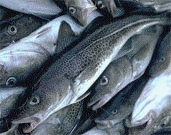
| THE HANDSTAND | LATE AUTUMN2008 |
A PAGE ON FISH
08/31/2008 - 06:08.
 London, Aug 31 :
Fish are just as intelligent as mammals, claims a leading
researcher.
London, Aug 31 :
Fish are just as intelligent as mammals, claims a leading
researcher.
While owls and foxes are known for their wisdom, the humble goldfish is famous for its ignorance, swimming contentedly around its bowl as its memory was wiped every three seconds.
But, according to Dr Mike Webster of St Andrews University, the stereotype of a goldfish with a three second memory is a myth.
The researcher claims that he has discovered that fish show a high level of intelligence when they are in danger.
"A lot of people have this stereotype image of a goldfish with a three second memory and that''s not the case at all," Telegraph quoted Dr Webster, as saying.
"It is probably accurate to say that many fishes such as minnows, sticklebacks and guppies are capable of the same intellectual feats as rats or mice,” the researcher added.
To reach the conclusion, Dr Webster carried out a series of experiments to show how minnows escape being eaten by predators by using techniques of shared learning.
He discovered that a solitary fish separated from the shoal by a clear plastic divider, will make its own decisions when there is no threat.
But when a predator was placed in the shared pool, the single fish took its cue on how to act by watching the other fish.
The biologist said: "These
experiments provide clear evidence that minnows
increasingly rely on social learning as the basis for
their foraging decisions as the perceived threat of a
predator increases."(ANI)
05/19/2008 - 03:27.

Sydney - Not watching their weight can be deadly for gobie fish who live on the Great Barrier Reef on Australia's east coast, researchers have found.
The team from James Cook University in Townsville discovered that within shoals of gobie there was a hierarchy based on weight.
Smaller fish risked being expelled from the group if they eat too much and stood to move up the pecking order because of their increased bulk. Fish thrown out of the pack face certain death from their predators.
Team leader Philip Munday found that smaller fish would not touch extra food given to them for fear of gaining weight.
"We were really surprised," Munday told reporters. "We were thrilled when we saw that these things can make a decision. They will stop feeding if it's not in their best interest."
Munday said that in gobies, where only the largest male and female had mating rights within the group, subordinate fish were consistently 5 to 10 per cent smaller than the next largest.
"If the second in the queue gets
too big then things get nasty and the first in the queue
will actually try and boot out the second," he said.
(dpa)vv
Fishery management actions can sometimes have unexpected outcomes
05/15/2008 - 09:10.
Washington, May 15 : A new research has indicated that restoring fish populations such as exotic salmon and trout to the Great Lakes in America might adversely affect the health of Sea Gulls, demonstrating that fishery management actions can sometimes have very unexpected outcomes.
The research, carried out by Craig Hebert and his team from the National Wildlife Research Center in Ottawa, Canada, analyzed 25 years of data on the gulls and found that throughout the Great Lakes region, the birds were in poor health in many areas.
Tests of their fatty acids showed an increase in the type of transfat that mostly comes from food produced by humans.
“It seems that the birds are being forced to make a dietary shift from fish to terrestrial food, including garbage,” said Hebert.
Although no one is certain why the birds are eating more garbage, evidence points to fish stocking.
When exotic salmon and trout have been added to the waters, the birds seem to be out competed for their favorite prey of smaller fish, such as alewifes.
Gulls are top predators in this system. When fish are unavailable, the birds turn to land instead for their foraging.
When given a choice between prey fish and garbage, the birds readily chose the fish. Thus, scientists assume that they only eat garbage when the prey fish numbers are low.
Prey fish in the Lake have been declining since 1980.
Although multiple factors may be at play, predation by piscivorous fish appears to be the one factor that was universally important across all five Great Lakes because of massive fish stocking, which was done to create recreational activities, and to reduce populations of exotic prey fish in the hope of restoring populations of native fishes.
“The effects on other species that are more closely tied to the water, such as terns, may be more severe,” said Hebert. “Those kinds of birds can only eat fish, so their diet may be affected by this, too. They don’t have the option of eating food found on land,” he added. (ANI)
FOSSILS
01/18/2008 - 11:53.